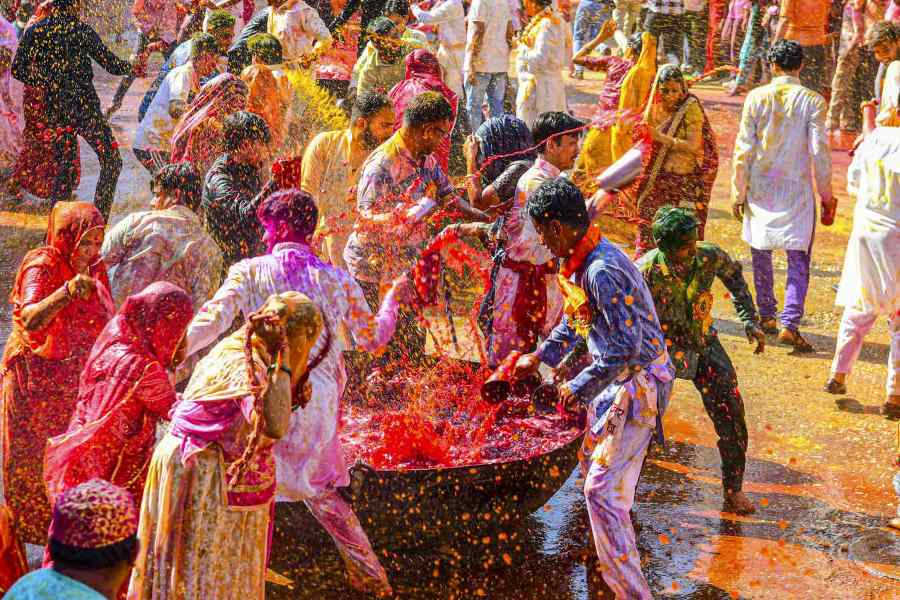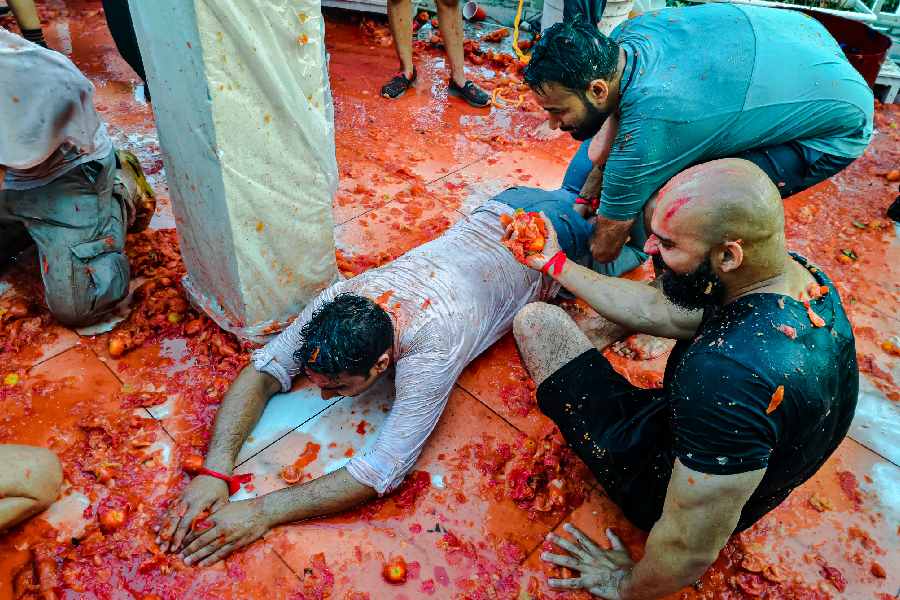 Thursday, 05 March 2026
Thursday, 05 March 2026
 Thursday, 05 March 2026
Thursday, 05 March 2026
In the national capital, the air is tense.
Meat shops have become a flashpoint for political and religious debate as Delhi BJP leaders demand their closure during Chaitra Navratri, citing Hindu sentiments.
The debate, of course, has acquired political colour. “During Navratri, meat shops are set up even in front of temples. It is a Hindu festival, and seeing these shops hurts our sentiments,” declared Delhi BJP MLA Ravinder Negi.
“On Meethi Eid, one can eat sewaiya, there is no need to slaughter a goat”, Negi added.
He also said that even if the directive is not enforced across Delhi, he will make an effort to ensure that shops remain closed in his Patparganj constituency.
The Chaitra Navratri, dedicated to Goddess Durga, began on March 30 and will conclude on April 6.
And yet, while Delhi wrestles with meat bans and ‘hurt’ religious sentiments, Kolkata offers a different story.
A mere 15 minutes from Zakaria Street — the heart of Kolkata’s sprawling Ramadan market — another kind of celebration unfolded.
In the narrow lanes of Bentinck Street, Amit Singh, a local businessman, was busy overseeing the final arrangements of an event he funded in his mother’s name.
The event is called ‘Holi and Eid Milan’, a gathering organised under the banner of the Jai Mata Di Seva Samiti, where Hindus, Muslims, Christians and Parsis come together — not to fight over food or faith, but to celebrate both.
"We could have included Easter also!" Singh told My Kolkata, laughing. "But it doesn’t matter. Everyone joins us. There is no political colour.”
The menu was carefully chosen: dahi bhalle, veg cutlet, sevaiyan, and Mohabbat ka Sherbet — a heady mix of rose syrup, milk, and watermelon pieces.
No meat. No onion or garlic. “We know there are a lot of Muslims in this locality,” Singh explained. “But it’s also Navratri, so we kept it vegetarian.
Singh, unfazed by the nationwide debate over meat shops, pointed toward a young man in the corner. "That’s Sabir Khan, the local Youth Congress President," he said, as Amit Singh's father, an octogenerian gleefully eating sevaiyan, suddenly declared, “Hum Bhajpa (BJP)!”
If anyone expected a verbal duel, none came.
There were no slogans, no mudslinging — just food, conversation, and an unspoken agreement that, in Kolkata, things tend to work differently.
“My mother used to say… larna kyun hai? Sab biradari ek saath rehna chahiye.” (Why fight? Every community should live together.)
And for Amit Singh, the lesson has stuck.
In Delhi, BJP leaders talk of emotions being hurt by the sight of butcher shops. And in Kolkata? The city does what it has always done best — let the conversations flow over a shared meal, where food is not just sustenance, but a symbol of coexistence.
A reminder that, sometimes, the best response to political noise is the sound of the laughter of people, who, for one evening at least, refuse to be divided.







